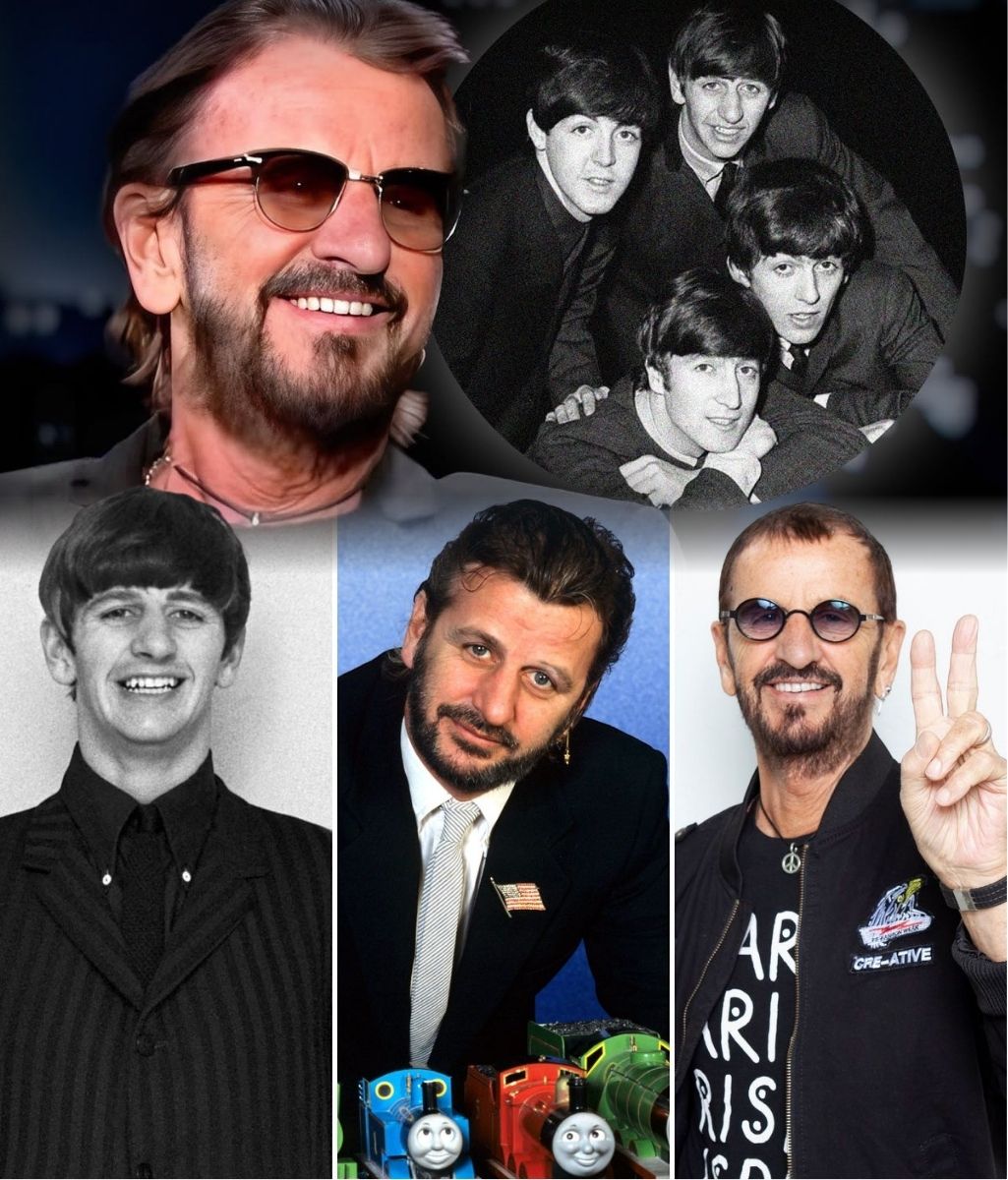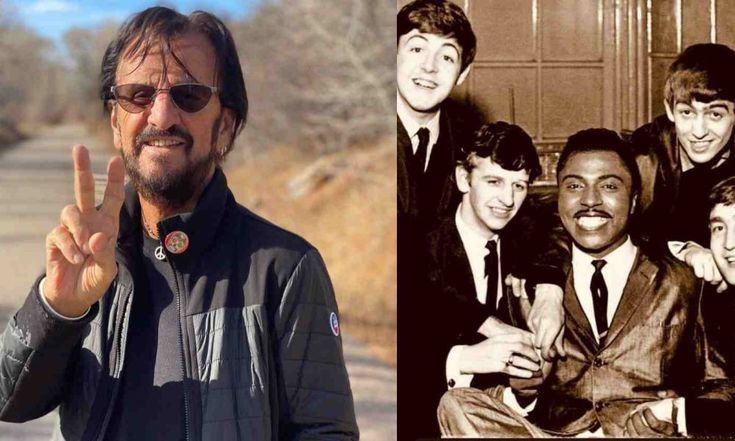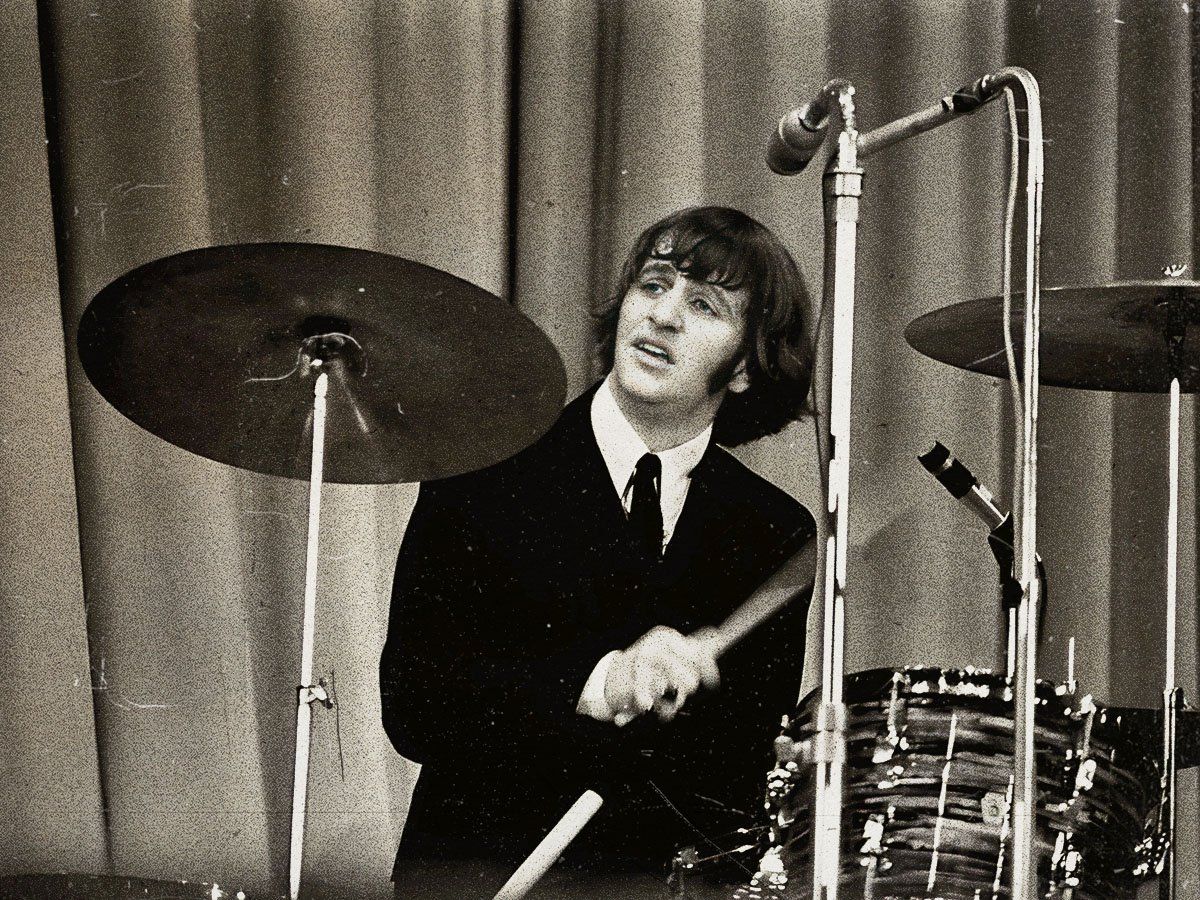
The story of how Ringo Starr joined The Beatles has been told in fragments for years — an anecdote here, a passing mention there. But when Ringo himself tells it, the tale feels alive again, filled with smoke, laughter, and the unplanned rhythm of destiny.
The setting wasn’t glamorous. It was a small cellar in England — the kind of place where dreams were louder than the amplifiers. The air was thick with cigarette smoke, the walls damp, and the music trembling with energy. It was here, in that underground echo chamber, that Ringo first saw them: three young men with guitars, chasing a sound that was rough, raw, and completely their own.
💬 “They were teaching Stu how to play bass,” Ringo recalled with a grin. “We were the big shots then — Rory Storm and the Hurricanes. We had suits.”
At that time, Ringo wasn’t just another drummer looking for a gig. He was already a star in Liverpool’s buzzing scene, playing packed dance halls and building a name as one of the tightest rhythm men in the North. The Beatles, meanwhile, were still sharpening their edges, still figuring out who they were.

But fate, as it often does, had other plans — and it waited in Hamburg.
Germany in the early 1960s was a different world: neon lights, all-night clubs, endless music. The Beatles and Rory Storm & The Hurricanes found themselves booked in the same circuit of clubs, playing marathon sets to rowdy crowds hungry for rock ’n’ roll.
💬 “That’s where I really saw it,” Ringo said softly. “That front line — John, Paul, and George — I loved it.”
He watched them night after night, their sound growing tighter, their chemistry undeniable. Between shows, they’d trade stories, share a drink, borrow instruments. Slowly, the line between competition and camaraderie began to blur.
Then came the morning that changed everything. A knock on the door. On the other side stood Brian Epstein, The Beatles’ meticulous manager, always in a suit and always with purpose.
💬 “Would you join the lads?” he asked.

Ringo hesitated for a moment. He thought about his old band, the friendships, the steady gigs. Then he smiled — that familiar, easy smile that would one day disarm the world.
💬 “Sure,” he said. “When do we start?”
That was it — no contract, no drama, no grand announcement. Just a yes. And with that yes, the final piece of The Beatles fell into place.
From smoky basements to blinding world stages, Ringo’s steady rhythm became the heartbeat of a phenomenon. His drumming wasn’t flashy, but it was unmistakably alive — the pulse beneath A Hard Day’s Night, the swing behind Ticket to Ride, the lift that carried Hey Jude home.
Years later, when asked if he ever imagined what would come from that knock on the door, Ringo simply laughed. “Nah, we were just lads having fun,” he said. “Then it went mad.”
Mad indeed. But somewhere beneath the madness — the screaming fans, the flashing cameras, the weight of history — you can still hear the quiet beat that began it all: a man saying “yes” in a smoky room, and the rhythm of the world changing forever.
